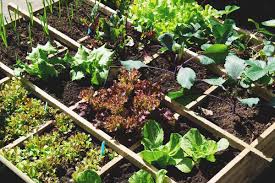Gardening

Gardening is a wonderful hobby that allows you to connect with nature, grow your own plants, and create beautiful outdoor spaces. Whether you're a beginner or an experienced gardener, there's always something new to learn and explore. What specific aspects of gardening are you interested in? Do you have any questions or would you like some general information to get started?
Certainly! Here are some more aspects of gardening that you might find helpful:
Types of Gardens: There are various types of gardens you can create, such as vegetable gardens, flower gardens, herb gardens, container gardens, or even specialized gardens like butterfly gardens or succulent gardens. Each type has its own requirements and benefits, so you can choose based on your interests and available space.
Soil Preparation: Good soil is the foundation for a successful garden. It's important to understand the composition of your soil and make any necessary amendments to improve its fertility and drainage. Adding organic matter like compost or aged manure can help enrich the soil and provide essential nutrients to your plants.

Plant Selection: Choosing the right plants for your garden is crucial. Consider factors such as your climate, available sunlight, and the specific needs of each plant. Some plants require full sun, while others thrive in shade. It's also helpful to select plants that are suited to your gardening experience level and the time you can dedicate to maintenance.
.jpeg)
Watering: Proper watering is essential for the health of your plants. It's important to water them consistently, but not excessively. Different plants have different water requirements, so it's beneficial to research the needs of the plants in your garden. Consider using techniques like drip irrigation or mulching to conserve water and promote efficient watering.
.jpeg)
Pest and Disease Management: Garden pests and diseases can harm your plants. Integrated Pest Management (IPM) techniques focus on preventing and managing pests and diseases in an environmentally friendly manner. This may involve using natural predators, practicing good sanitation, or using organic pest control methods.
Pruning and Maintenance: Regular pruning and maintenance help keep your garden looking neat and promote healthy growth. Pruning can stimulate new growth, shape plants, and remove dead or diseased parts. Additionally, tasks like weeding, mulching, and fertilizing are important to maintain the overall health and appearance of your garden.
Harvesting and Preserving: If you have a vegetable or herb garden, you'll eventually enjoy the satisfaction of harvesting your own produce. Learn about the right time to harvest each crop and the proper techniques for storing or preserving your harvest, such as canning, freezing, or drying.
Remember, gardening is a hands-on experience, and there's no substitute for getting your hands dirty and learning through practice. Enjoy the process and don't be afraid to experiment and try new things.
Comments
Post a Comment